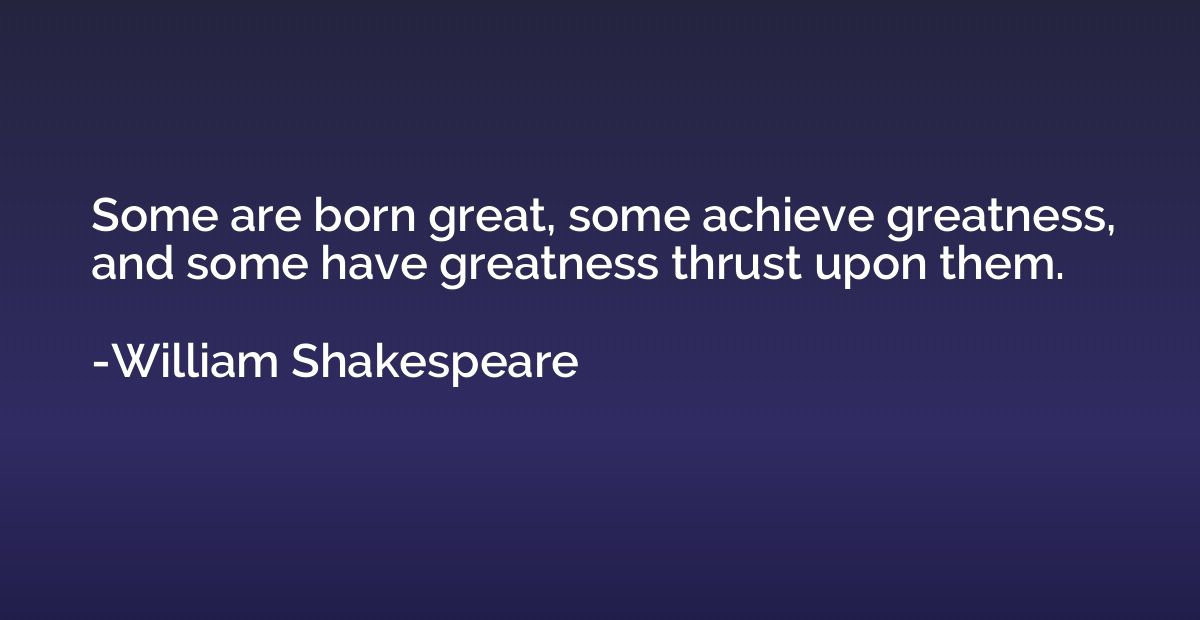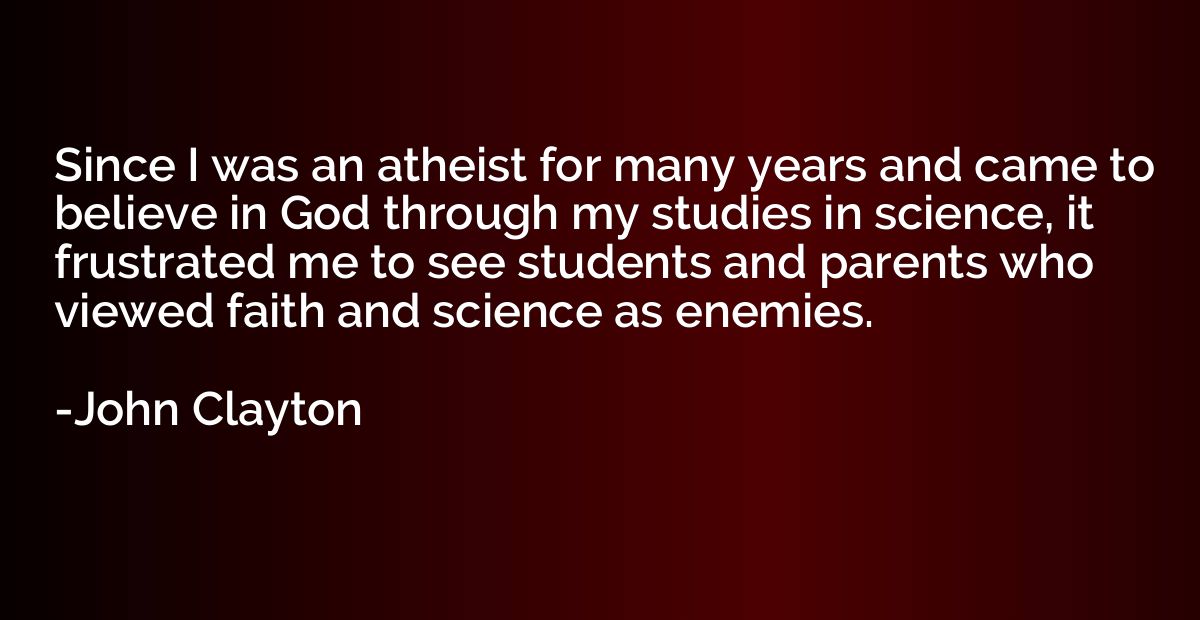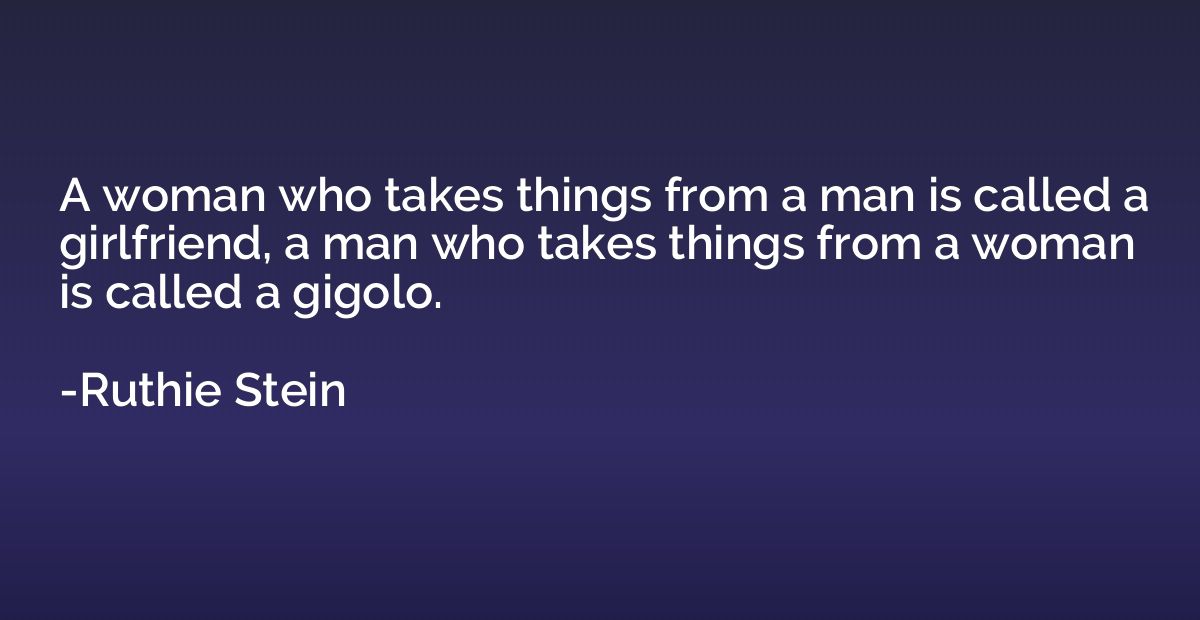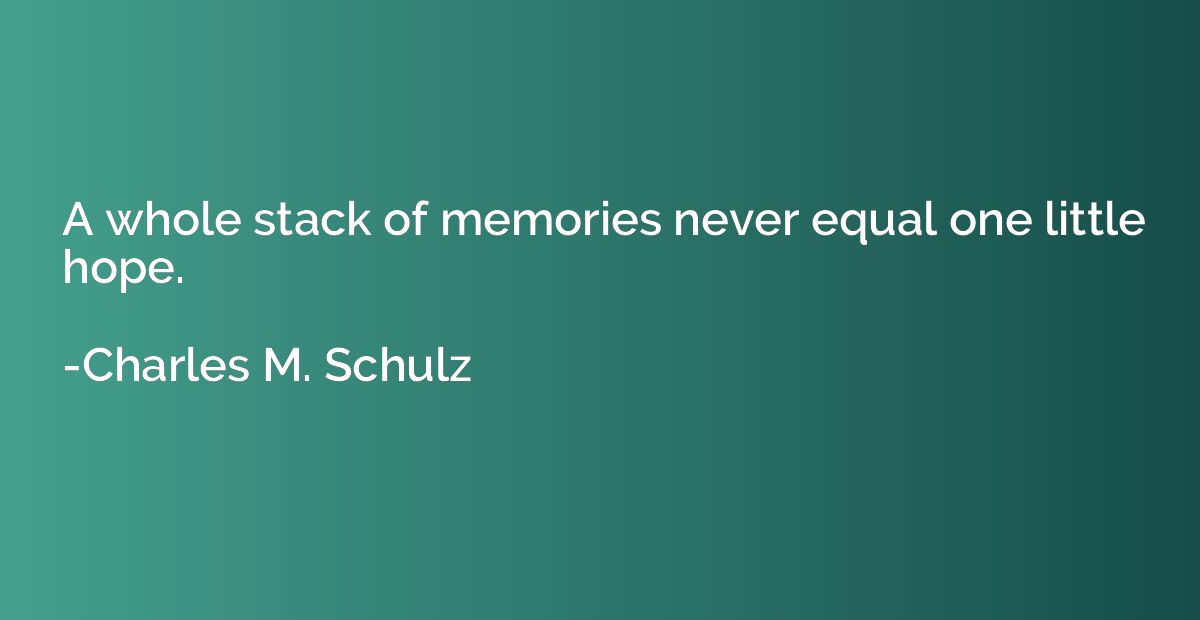Quote by William Shakespeare
Some are born great, some achieve greatness, and some have greatness thrust upon them.

Summary
This quote, often attributed to William Shakespeare's play "Twelfth Night," conveys the idea that greatness can come to individuals in different ways. It recognizes that while some individuals are naturally endowed with great qualities or talents from birth, others can work hard and accomplish greatness through their efforts. Additionally, it acknowledges the possibility that greatness can be imposed on individuals unexpectedly or undeservedly, perhaps due to circumstances or opportunities beyond their control. Ultimately, the quote highlights the diverse paths through which greatness can be attained, emphasizing that it is not limited to any specific origin or trajectory.














